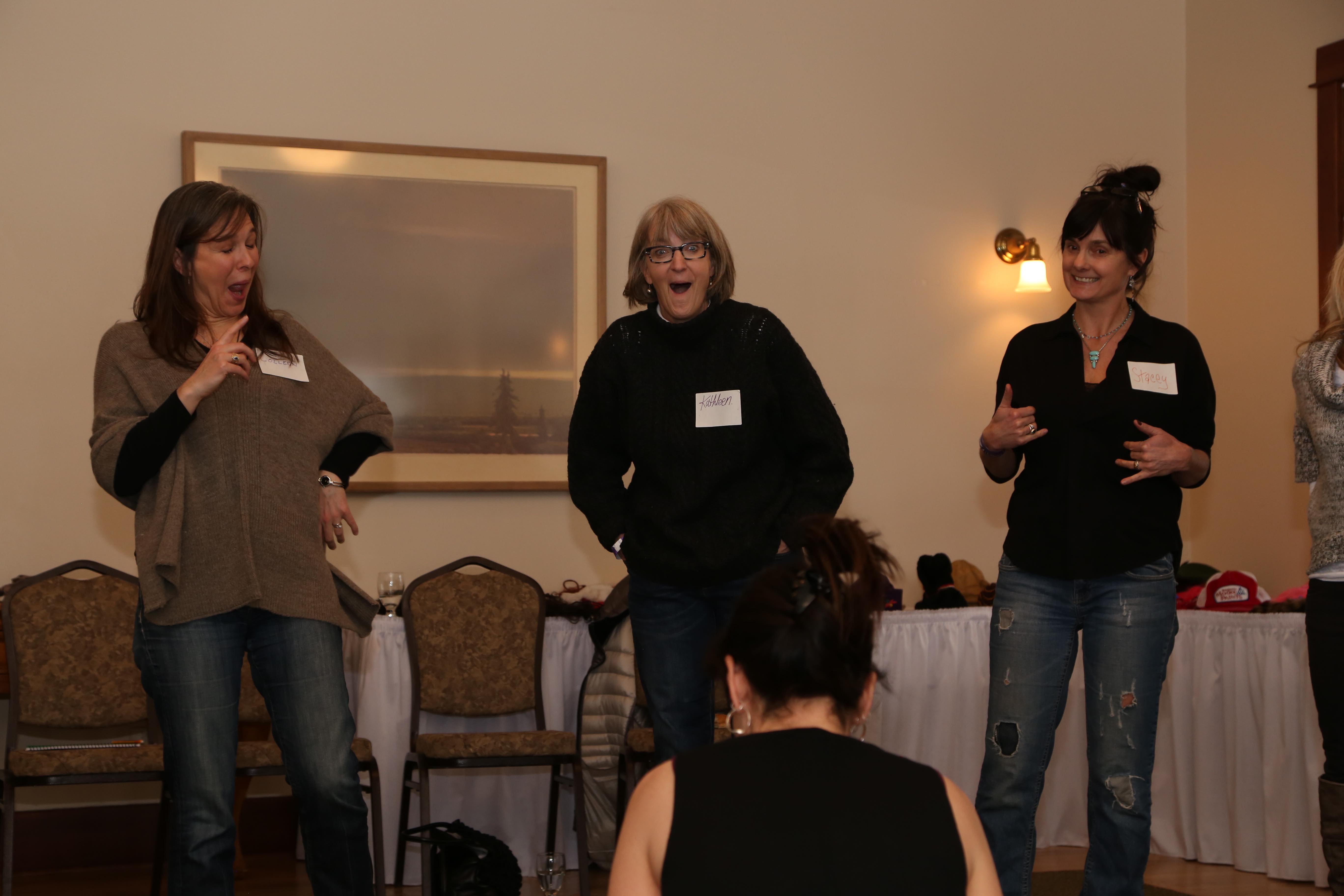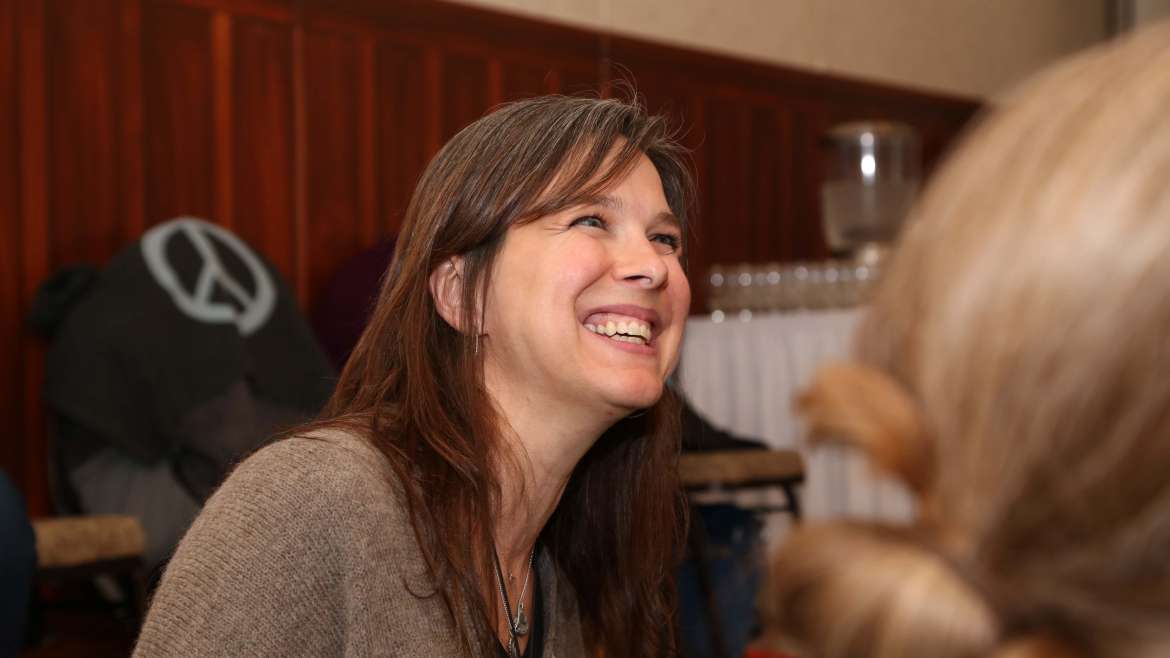
I didn’t expect to cry at an improv comedy workshop.
At the end of our two-day women’s improv retreat, many of us had apparently shed some tears. (I know because I asked for a show of hands, to test my theory that as odd as that sounds, I wasn’t alone.)
I wasn’t weeping because acting in front of an audience without the benefit of a script is so tough, although it was a real challenge at times.
Instead, it was the almost-immediate sense of trust and support in a group of about 30 women that made it safe for us to share thoughts and experiences that we keep to ourselves most of the time. I had a deep conversation about the loss of my mom in 2001 that led to a cleansing b00-hoo I didn’t realize I needed all these years later.
At the start of our time together, workshop leader Katie Goodman led us in developing a shared set of expectations for our retreat. We offered words like trust, openness, unguarded and vulnerable, along with playful and laughter and joy.
Then we began a series of increasingly difficult improv exercises, partnering up to write poetry, sing songs and act out scenes totally created in the moment. All of us took turns performing while everyone else laughed and applauded. We all struggled at times and that mattered not at all when it came time to cheer for each other.

Not long into our first day, one of the women asked somewhat plaintively, how can we get to this place in real life? How can we be comfortable risking embarrassing ourselves and how can support other people in taking risks?
That’s a big question we probably could have spent all weekend on. I’ve been thinking about it ever since.
Part of what I felt with these awesome women was the safety of knowing we’re all in this together.
If you’ve just seen someone else freeze in front of the room, trying to think of something to say and going completely blank, then witnessing the loving patience of the group while she figures it out, you know you’ll be OK if you aren’t perfect. Everyone there knew we were rookies, we were going to root each other on no matter what.
But where did this expectation of “perfect” come from anyway? Let’s suppose we were all professional improv actors who had been doing this for decades. Would we be less supportive of one another if we took risks that didn’t always work out?
So I think the most important part wasn’t just what we’d seen each other be imperfect but that we all agreed to try and to support each other in the trying.
If you’ve ever done that ice breaker where one person falls backward into someone else’s arms, this was the emotional equivalent. We trusted each other to uphold our efforts.
That feels like something we can bring back into our regular lives.
We talked this weekend with a friend of a friend who’s run the New York marathon for several years, and we all agreed it’s beautiful how thousands of people line the streets to cheer for amateurs doing this grueling thing.
Can we agree to cheer for others, whether we know them or not, when we see them trying?
And if someone has to be the first to take the risk, maybe we can do that? Because it turns out, you’re unlikely to die of embarrassing yourself, and in fact, you might connect with someone when you show your vulnerability.
So much of the downside of taking a risk is inside our own heads. Very few people will actually point and laugh if we do something that doesn’t work — and frankly, I think it’s a gift to know who those people are so I can run as far in the other direction as I can.
I came back from our weekend in Montana completely recharged creatively. Some of that was from the improv exercises themselves, but I think most was from the gentle guidance Katie provided to connect our silly scenes back to real life.
She asked us to reflect on what holds us back from taking risks, and suggested we try to move forward anyway, even if we aren’t sure we’re ready or that we’ll succeed. We had to do that in our improv scenes and it often led to hilarious results that brought thunderous applause. Why couldn’t that happen at work or at home?

Related blog posts:

Crying at an improv workshop was a good thing
